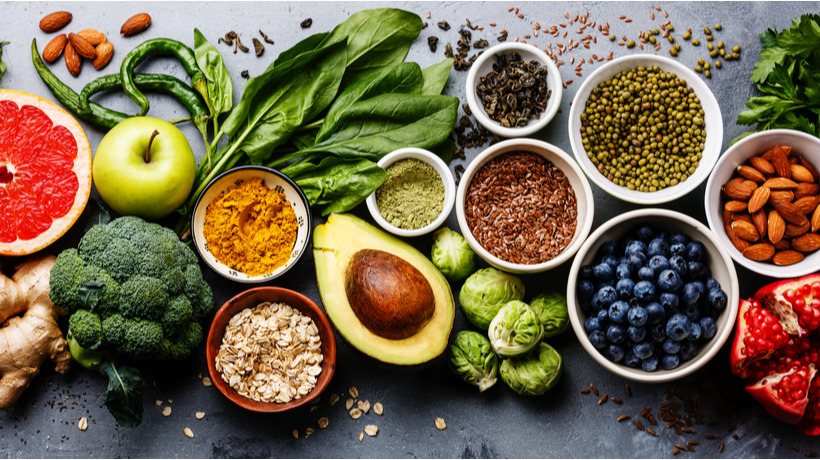If you often find yourself feeling blue during the darker winter months, you aren’t alone. According to Jeffrey Borenstein, M.D., President & CEO of the Brain & Behavior Research Foundation, these bouts of low mood and fatigue can be attributed to factors ranging from changes in your biological clock (circadian rhythm), to disruption of melatonin and serotonin levels.
Many of us turn to food for comfort, but there’s a catch: the food we enjoy isn’t always food that will help us feel good in the long-run. In fact, according to Catherine Nay, M.Ed., RD, CHES, CSOWM, and Megan Brown, MPH, RD, registered dietitians with Michigan Medicine’s Weight Management and Obesity Program, your diet can play a significant role in your emotional wellbeing.
If you are looking for a pick-me-up this holiday season, try incorporating into your diet these five types of foods. According to Nay and Brown, they might just give you the boost your body (and mind!) is craving.
1. Turkey
You’ve probably heard that eating turkey makes you tired, but did you know that it might also make you happy? Tryptophan, which is found in turkey, is a precursor to serotonin, a neurotransmitter in the brain that plays a role in sleep, appetite, impulse control, and even mood! If you aren’t a big fan of turkey, you can also find tryptophan in nuts, milk, salmon, eggs, soy products, and spinach.
2. Spinach and Nuts
Spinach gets two showings on this list; and for good reason! In addition to tryptophan, spinach contains magnesium, a mineral which, according to Nay, can help you sleep and also reduce your anxiety. Other sources of magnesium include nuts, whole grains, and legumes.
3. Berries and Dark Chocolate
You might have heard that when it comes to your health, not all chocolate is created equal. Milk chocolate is high in sugar, causing your blood sugar (and possibly mood) to spike then drop. On the other hand, dark chocolate contains cocoa flavanols, an antioxidant that has been shown to reduce inflammation, which may be linked to depression.
For an extra boost, Nay suggests you eat your dark chocolate with berries, which contain phytonutrients that help protect the brain from the impact of stress.
4. Fatty fish
Just like phytonutrients, Omega-3 fatty acids can help reduce inflammation in the body. To get more, try to eat fatty fish like salmon, sardines, lake trout and albacore tuna at least twice a week, as recommended by the American Heart Association. If you don’t like fish, Brown says flax seeds, chia seeds and walnuts will do the trick!
5. Coffee, Tea, Wine, and Water
If you don’t always have a beverage handy, here’s another reason to reconsider: they could be the secret to a happier mind! We all know that the caffeine in coffee can help wake you up, but in moderation, it might also help to boost your mood. Additionally, coffee, tea and wine (in moderation) all contain beneficial plant polyphenols, which are powerful antioxidants that can decrease inflammation in the body. Nay also suggests that drinking plenty of water can help your mood.
For more on how the food you eat and drink can impact your emotional health, visit healthblog.uofmhealth.org.



